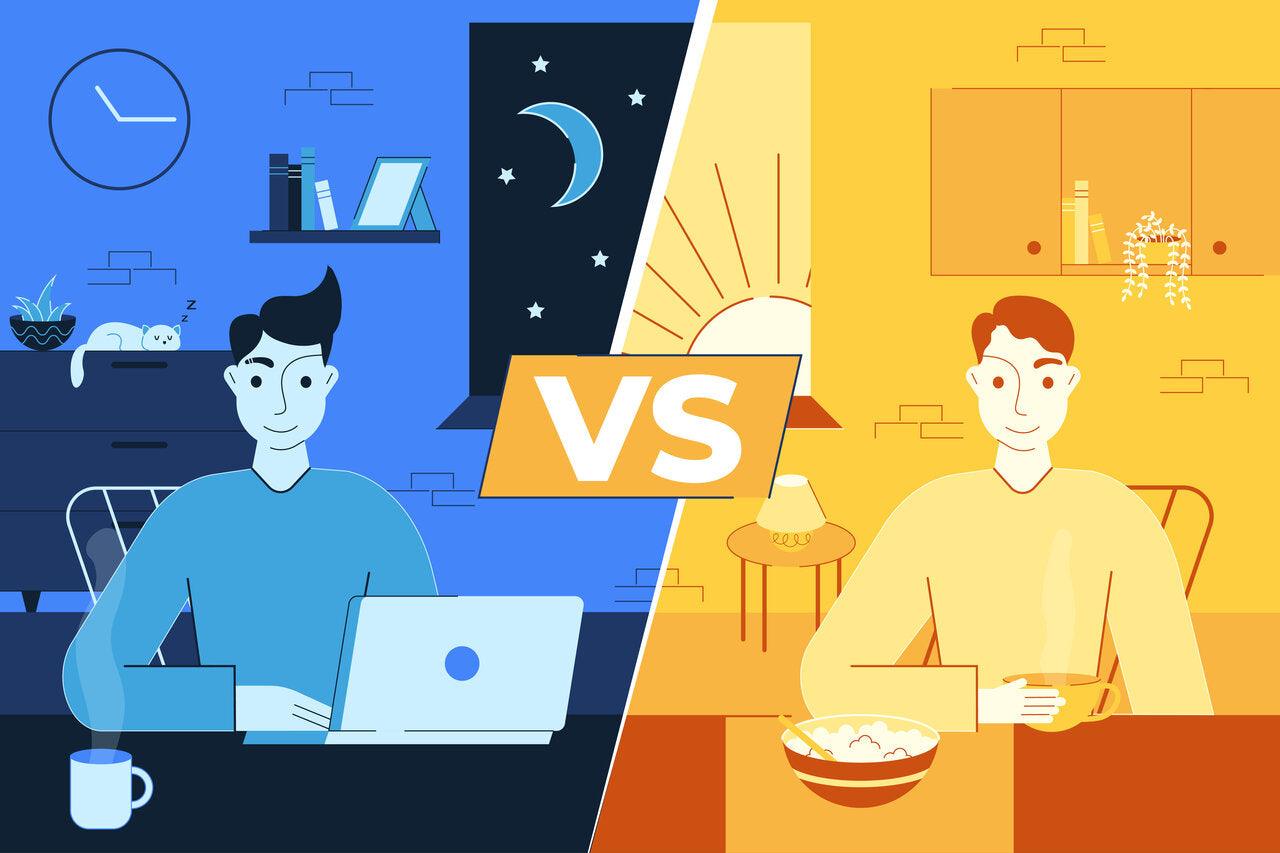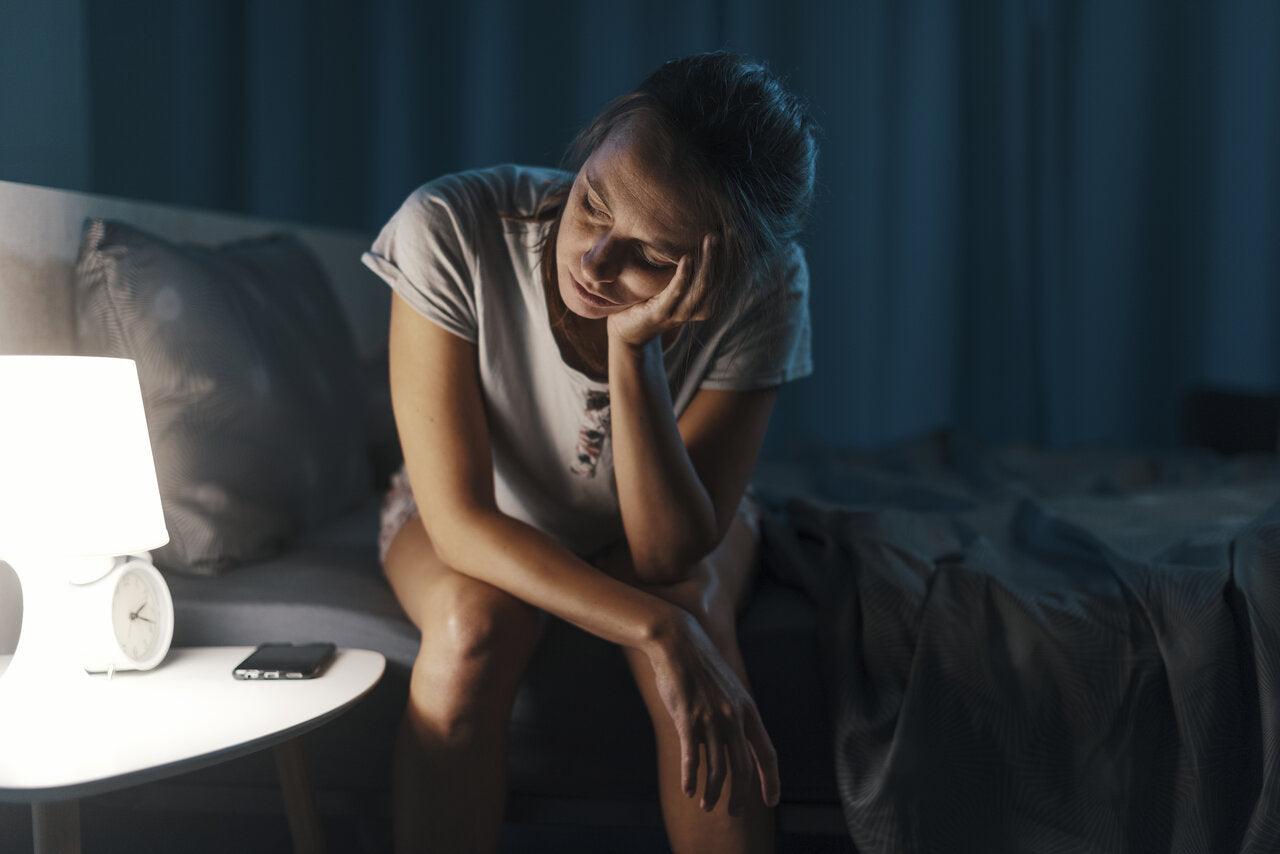We’re sure you’ve been asked before whether you prefer to wake up and start the day early, or burn the midnight oil and go to bed late – so, are you a morning person, or an evening person?
You’ve likely noticed that you feel naturally more alert during certain parts of the day and have lower energy at others. This pattern has to do with your own personal Circadian Rhythm, also known as your chronotype, that varies from person to person.
Are you still with us? OK, your chronotype isn’t set in stone, as your Circadian Rhythm naturally changes as you age.
For example, the body clock shifts during adolescence, making teens want to go to bed later and sleep longer than younger children, hence why teenagers are known to be in bed until lunchtime, if given the choice! So before you nag at your teenagers, it’s actually not all their fault…

Generally, we all fall into one of these two groups:
Morning lark:
If you find it easy to wake up in the morning and feel you have the most energy early in the day, you’re a morning person or an “early bird”. Those of you who are morning larks prefer to go to sleep early and wake early the next day. Research suggests that an early bird’s body clock may run slightly faster than 24 hours.
Night owls:
If you’re an evening person, some research suggests that your body clock runs slower than 24 hours. You’ll find it hard to wake up in the mornings and feel alert. You’ll have the most energy much later in the day, even as late as 11pm, and prefer to go to sleep later at night and wake later in the morning. Those binging late night on Netflix, this is you!
A Normal Circadian Rhythm
Regardless of whether you are a lark or owl because neither is right or wrong, as long as you have a normal Circadian Rhythm you will be able to:
- Wake up and go to sleep at the same time every day.
- Fall asleep at night when you want to and wake up in the morning at whatever time you need to.
- Fall asleep earlier each night and get up earlier than usual within just a few days – i.e. you are able to make small tweaks to your personal Circadian Rhythm in a small period of time. Your work schedule or early holiday flight may require you to switch, from either a morning lark to a night owl, and if you’re in control and aware of your Circadian Rhythm, this is every bit possible.
If you suffer from insomnia, excessive sleepiness, depression, stress etc or are struggling to focus on work or keep social obligations, your Circadian Rhythm could need some extra help.
As a guide, adults should have approximately 7-9 hours sleep a night regularly, regardless of the time your head actually hits the pillow.
So if you think your Circadian Rhythm has gone a little AWOL, make sure you follow our top tips on ensuring you have a healthy bedtime routine to get back on track!
The Ten:PM Sleep Team.
LINKS:
- Circadian Rhythm https://en.wikipedia.org/wiki/Circadian_rhythm



